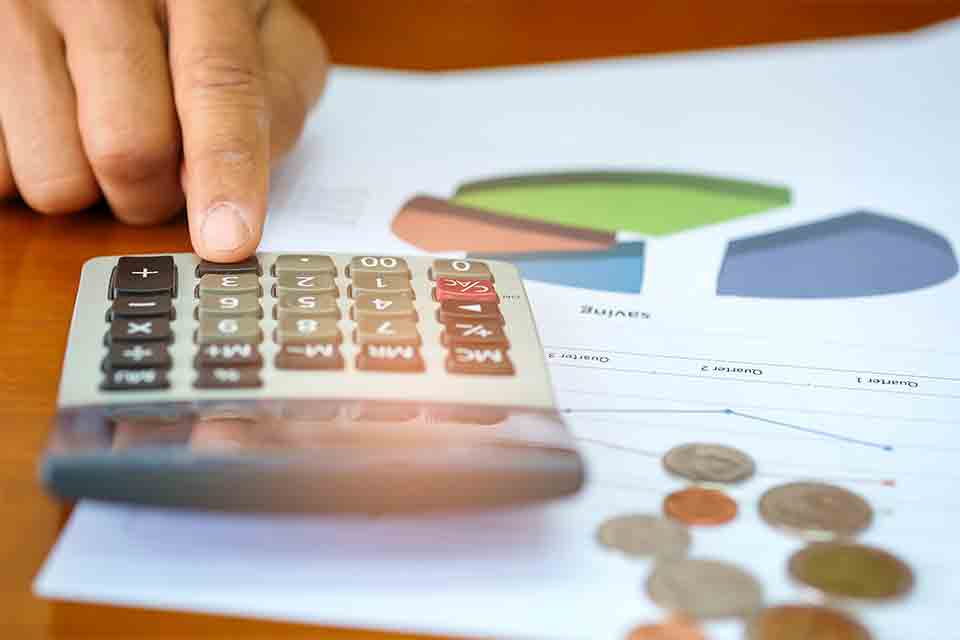Section 54 of Income Tax Act - Claim exemption under Section 54
Section 54 of Income Tax Act offers exemption on the residential property with the help from capital gains tax. The section 54 of the Income Tax Act provides the amount of exemption for the long-term capital gain will be lower of the two: selling of residential property or constructing or purchasing a new residential property. Section 54 of Income Tax Act is applicable for exemption towards long term capital gain arising on sale of residential property; the taxpayer is exempted from capital gains under section 54 of the income tax act.
The question that arises is that what part of the income is taxable while selling the property. The complete amount that you receive while selling the property is taxable? Well, that is not true. The amount that is taxable is the total profit that you earned on selling the property. It is the profit amount that is taxable. The capital gains are classified into two categories:
- Long-term capital asset
- Short-term capital asset
Short Term Vs. Long Term Capital Gains
The taxes on capital gains are levied on the basis of the nature of the capital gains if it is a short-term capital gain or a long-term capital gain. Capitals gains are divided into long-term and short-term capital gains and the tax is calculated accordingly. Simply put the tax rates and its computation varies for short-term and long-term capital gains.
Capital assets that are held for more than 36 months are referred to as Long-term Capital Gains. Any asset that was held for a duration lesser than 36 months is referred to as short term capital asset. The gains that one gets from selling short-term capital assets are also known as short-term capital gains. Similarly, gains earned from long-term capital assets are named as long-term capital gains.
For tax exemption under Section 54 of Income Tax Act, the residential property should be a long-term capital asset. To claim tax exemption from capital gains, the tax-payer should have held the property for more than 3 years from the purchase date.
Eligibility Criteria under Section 54 of Income Tax Act
When a taxpayer sells his/her residential property and purchases another residential property, then he/she can avail tax benefits under Section 54. The taxpayer must fulfill the following conditions to claim tax benefits under Section 54 of Income Tax Act:
- The transferred asset should be a residential house property and a long-term capital asset.
- Tax exemption under Section 84 is available only for individuals or HUFs. Companies or Limited Liability Partnership cannot avail this benefit.
- The profit earned will be classified as Income Earned from the House Property.
- Once the old house is transferred, the taxpayer should construct or acquire another house within 1 year before the transfer/sale and 2 years after selling/transferring the old house.
Tax exemption benefits under Section 54 of Income Tax Act are available for residential properties constructed or purchased only in India.
Tax exemption benefits are available only on one such transaction during a lifetime.
A taxpayer cannot claim tax benefits Section 54 of Income Tax Act if the property is sold in India and purchased abroad. The property constructed or purchase should be in India only.\
The conditions that are mentioned above are cumulative in nature. In case, one of the conditions is not filled, then the individual cannot avail tax-benefits under the purview of Section 54 of Income Tax.
What is the Capital Gains Account Scheme?
The Central Government introduced the Capital Gains Account Scheme in the year 1988. The aim is to promote reinvestment of the capital gains earned from selling the residential property. It offers relief from capital gains tax if it is invested in some specified assets within the stipulated time.
Under the purview of Section 54, if a taxpayer has earned long-term capital gains by selling a residential property, he/she can avoid it by constructing or buying a residential property within a specific time period from purchasing or construction the property.
There are many cases where the available time limit exceeds the due date of filing the tax return. With Capital Gains Account Scheme an individual can park the funds in Capital Gains Deposit Account Scheme till the time they are invested for the given purpose.
You can buy or construct the new house after taking out the deposits from the account. Make sure that the amount is withdrawn within 2 to 3 years. In any case, if the deposits are not utilized during that time for constructing or purchasing another house, then the complete amount will be taxable by the assesse.
Transfer of Residential Property after Claiming Tax Benefits under Section 54 of Income Tax Act
Moreover, if a person claims tax benefits under Section 54 of Income Tax Act, he/she should hold the constructed or purchased property for a minimum of 3 years. If the house is sold before completion of 3 years, then all the benefits will be withdrawn under section 54 of Income Tax Act. He/she will also need to pay the capital gains that are due on the last transaction.
What is the amount of Exemption available under Section 54 of Income tax act?
Under the purview of Section 54 of Income Tax Act, tax exemption for the long-term capital gains shall be the lower of either of the following:
- An investment made in the construction or purchase of a new residential home. Taxes will be applicable to the remaining capital gains.
- Capital gains earned from transferring the residential house
Note: If the new property is sold within 3 years from the date of construction or purchase, then the tax benefits that were claimed earlier under Section 54 of Income Tax Act shall be taxable in the fiscal year when the property is sold.
Illustration
Mr. XYZ got his house constructed in Delhi in 1998 for INR 15 lakh. His son booked a flat in Jaipur at the pre-launch stage 5 years ago and for this, he took a home loan of INR 30 lakh. And the actual cost of the flat is INR 40 lakh. And his son got the possession on March 20. Now, they have the option to sell both the assets and buy a new flat in Jaipur for INR 1 Crore. They are expecting INR 45 lakh by selling their Delhi property and nearly 60 lakh by selling the Pune flat.
Their plan is to utilize the profits by selling the Jaipur flat to pay off the home loan and buy a new apartment with the remaining amount. Also, the profits from the sale of Delhi house will be further used to fund the purchase of the proposed flat in Jaipur.
What should they do to complete these transactions in the stipulated time-frame and save on long term capital gain tax from this transaction?
When Mr. XYZ will sell his property he will be subjected to long-term capital gains tax. Moreover, he can claim tax benefits under Section 54 of Income Tax Act. But this is available only when he obtains co-ownership rights in the new property along with his son. He should be able to invest a sum at least equal to the accumulated long term capital gains.
In this case, his son should not take possession of the flat at Jaipur. You can give the authority to the prospective buyer to take the ownership directly from the property developer. You can use the long-term profits that you have earned while transferring the property, for pro-rata investments of the new flat that you will get on a co-ownership basis under Section 54 of Income Tax Act. Both Mr. XYZ and his son will be entitled to claim tax benefits under various sections of the IT Act, 1961.
If he transfers the flat after taking the possession then tax deduction may be disputable, as it will be confliction to decide if it is a long-term or short-term capital gains. Tax exemption under Section 54F under Sections 54 is valid only on long-term capital gains.
Section 54F v/s Section 54 of Income Tax Act
As per the provisions in the Income Tax Act, a taxpayer can claim tax exemption benefits against capital gains that will reduce the total tax outgo. The two main tax exemptions are available under Sections 54F and Section 54 of Income Tax Act.
Tax benefits on Long-term Capital Gains are available under Section 54 on a House/Residential Property. Tax benefits on Long-term Capital Gains under Section 54F are available on assets other than House Property.
Common Requirements between the Section 54F and Section 54 of Income Tax Act
- To claim tax benefits it is important to purchase or construct a new residential house property
- The new property should be purchased within 1 year before the sale and 2 years after the property/asset is sold.
- Also, the construction of the new house should be constructed within 3 years of selling the asset/property
- In case you are not able to invest the amount in the stated manner within 1 year of the selling date or before the expiry date of tax filing, whichever is earlier, you can deposit this amount in Capital Gains Account Scheme or a public sector bank
- Tax benefits under Section 54Fand Section 54 of Income Tax Act. Are only applicable to one property ( constructed/purchase)
Differences between Section 54F and Section 54 of Income Tax Act
|
Section 54 of the Income Tax Act |
Section 54F of the Income Tax Act |
|
Tax exemption is available upon the investment of the entire capital gains |
Tax exemption is available upon the investment of the entire sale receipts |
|
If the profit earned is not invested then the remaining amount will be charged as long-term capital gains |
If you are not able to invest the sale receipts then tax benefits are allowed in proportion. Tax exemption is equal to the cost of the new house into the Sale Receipts/Capital Gains |
|
|
Tax benefits are available only on one residential house while selling the original property |
|
If the property is sold within 3 years of purchase then tax benefits will be withdrawn. In such a case, the capital gains that you get from selling the property are taxable as short-term capital gains. |
If the property is sold within 3 years of its construction or purchase then tax exemption will be withdrawn. In case you buy another property within 2 years of selling the original property tax benefits will be withdrawn. Moreover, if you construct another house within 3 years of selling the original property then also tax benefits will be withdrawn. In such a case, the capital gains that you get from selling the property are taxable as long-term capital gains. |
Things to Remember under Section 54 of Income tax Act
- If the total sale amount is more than the actual cost of the new house, then the tax exemption is provided proportionally. You can re-invest the remaining amount within 6 months under Section 54EC.
- The property should be purchased only in the name of the seller
- Tax exemption is also allowed when the builder of the new house fails to hand over the property within 3 years of the purchase
˜The insurers/plans mentioned are arranged in order of highest to lowest first year premium (sum of individual single premium and individual non-single premium) offered by Policybazaar’s insurer partners offering life insurance investment plans on our platform, as per ‘first year premium of life insurers as at 31.03.2025 report’ published by IRDAI. Policybazaar does not endorse, rate or recommend any particular insurer or insurance product offered by any insurer. For complete list of insurers in India refer to the IRDAI website www.irdai.gov.in
*All savings are provided by the insurer as per the IRDAI approved insurance plan.
^The tax benefits under Section 80C allow a deduction of up to ₹1.5 lakhs from the taxable income per year and 10(10D) tax benefits are for investments made up to ₹2.5 Lakhs/ year for policies bought after 1 Feb 2021. Tax benefits and savings are subject to changes in tax laws.
¶Long-term capital gains (LTCG) tax (12.5%) is exempted on annual premiums up to 2.5 lacs.
++Source - Google Review Rating available on:- http://bit.ly/3J20bXZ


- SIP Calculator
- Income Tax Calculator
- Compound Interest Calculator
- NPS Calculator
- Show More Calculator
Income Tax articles
Explore the popular searches and stay informed
- LIC
- Investment Plan
- Annuity Plan
- Child Plan
- Pension Plan
- ULIP Plan
- Child Investment Plan
- SIP
- LIC Calculator
- SIP Calculator
- SBI SIP
- ULIP Calculator
- Sukanya Samriddhi Yojana
- Best SIP Plans
- Retirement Planning
- SBI SIP Calculator
- HDFC SIP Calculator
- Sukanya Samriddhi Yojana Interest Rate
- NPS Interest Rate
- Deferred Annuity Plans
- SBI Annuity Deposit Scheme Calculator
- Immediate Annuity Plans
- Post Office Child Plan
- Prime Minister Schemes For Boy Child
- Government Schemes for Girl Child
- 50k Pension Per Month
- Atal Pension Yojana Calculator
- Best Pension Plan in India
- CIBIL Score
- 1 Crore Term Insurance
- Best Term Insurance Plan
- Term Insurance for Women
- Term Insurance for NRI
- Term Insurance
- Term Insurance Calculator
- Life Insurance
- Term Insurance with Return of Premium
- Whole Life Insurance
- Term Insurance vs Life Insurance
- What is Term Insurance
- Life Insurance Calculator
- 5 Crore Term Insurance
- 2 Crore Term Insurance
- 50 Lakh Term Insurance
- Term Insurance for Housewife
- Benefits of Term Insurance
- Term Insurance Terminology
- Medical Tests for Term Insurance
- Term Insurance for Self Employed
- Claim Settlement Ratio
- 10 Crore Term Insurance
- Term Insurance for Smokers
- 1.5 Crore Term Insurance
- Zero Cost Term Insurance
- Home Loan Insurance Calculator
- FIRE Calculator
- EMI Calculator












